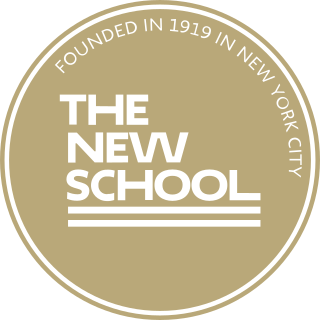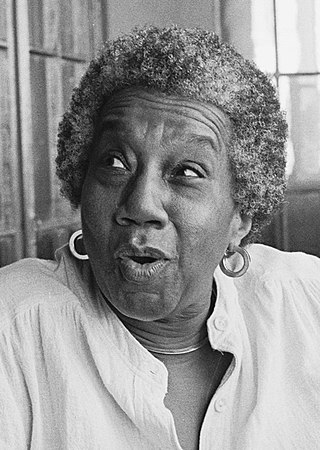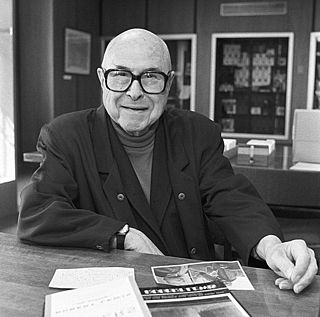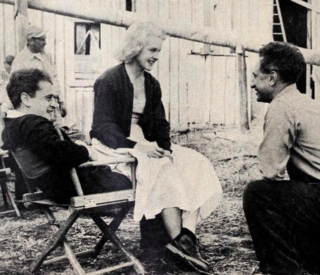Related Research Articles

Stanislavski's system is a systematic approach to training actors that the Russian theatre practitioner Konstantin Stanislavski developed in the first half of the twentieth century. His system cultivates what he calls the "art of experiencing". It mobilises the actor's conscious thought and will in order to activate other, less-controllable psychological processes—such as emotional experience and subconscious behaviour—sympathetically and indirectly. In rehearsal, the actor searches for inner motives to justify action and the definition of what the character seeks to achieve at any given moment.

Lee Strasberg was an American theatre director, actor and acting teacher. He co-founded, with theatre directors Harold Clurman and Cheryl Crawford, the Group Theatre in 1931, which was hailed as "America's first true theatrical collective". In 1951, he became director of the nonprofit Actors Studio in New York City, considered "the nation's most prestigious acting school," and, in 1966, was involved in the creation of Actors Studio West in Los Angeles.

Stella Adler was an American actress and acting teacher.

Judith Malina was a German-born American actress, director and writer. With her husband Julian Beck, Malina co-founded The Living Theatre, a radical political theatre troupe that rose to prominence in New York City and Paris during the 1950s and 1960s. The Living Theatre and its founders were the subject of the 1983 documentary Signals Through The Flames.

Biagio Anthony "Ben" Gazzara was an Italian American actor and director of film, stage, and television. He received numerous accolades, including a Primetime Emmy Award and a Drama Desk Award, in addition to nominations for three Golden Globe Awards and three Tony Awards.

Erwin Friedrich Maximilian Piscator was a German theatre director and producer. Along with Bertolt Brecht, he was the foremost exponent of epic theatre, a form that emphasizes the socio-political content of drama, rather than its emotional manipulation of the audience or the production's formal beauty.
Sidney Armus was an American actor.

The New School is a private research university in New York City. It was founded in 1919 as The New School for Social Research with an original mission dedicated to academic freedom and intellectual inquiry and a home for progressive thinkers. Since then, the school has grown to house five divisions within the university. These include the Parsons School of Design, the Eugene Lang College of Liberal Arts, the College of Performing Arts, which includes the Mannes School of Music, The New School for Social Research, and the Schools of Public Engagement.

Vinnette Justine Carroll was an American playwright, actress, and theatre director. She was the first African-American woman to direct on Broadway, with her 1972 production of the musical Don't Bother Me, I Can't Cope. Until Liesl Tommy's 2016 nomination for Eclipsed, Carroll was the only African-American woman to have received a Tony Award nomination for direction.

Gene Saks was an American director and actor. An inductee of the American Theater Hall of Fame, his acting career began with a Broadway debut in 1949. As a director, he was nominated for seven Tony Awards, winning three for his direction of I Love My Wife, Brighton Beach Memoirs and Biloxi Blues. He also directed a number of films during his career. He was married to Bea Arthur from 1950 until 1978, and subsequently to Keren Saks from 1980 to his death in 2015.

Robert Lewis was an American actor, director, teacher, author and founder of the influential Actors Studio in New York in 1947.
Allan Miller is an American stage, film, and television actor.

Jakob Garfein was an American film and theatre director, writer, teacher, producer, and key figure of the Actors Studio.
Eleanore Deirdre O'Connell was an Irish American actress, singer, and theatre director who founded the Focus Theatre in Dublin, Ireland.

Maria Ley-Piscator is best known as the wife of Erwin Piscator (1893–1966), Germany's famous left-wing theater director. Born on 1 August 1898 in Vienna, Austria-Hungary, Maria Ley sought to create a theatrical career for herself as a dancer in Paris and Berlin. Later, she turned to choreography and helped in several stage productions with Max Reinhardt, including A Midsummer Night's Dream.
The Stella Adler Studio of Acting is a prestigious acting school that was founded by actress and teacher Stella Adler. The Stella Adler Studio of Acting has two locations: its original New York City conservatory, founded in 1949, and the Art of Acting Studio in Los Angeles. The Stella Adler Studio of Acting in New York is not affiliated with the Stella Adler Academy & Theatre, which Adler established in Los Angeles in 1985. The Stella Adler Studio and the Juilliard School currently boast the lowest program acceptance rates in the professional acting world. The studio only accepts 28 students a semester into its professional conservatory program.

The Actors Studio is a membership organization for professional actors, theatre directors and playwrights located on West 44th Street in Hell's Kitchen, New York City.

Bennes Mardenn was an American actor, director, teacher, and mentor to many actors.

Elizabeth Kemp was an American actress and acting coach.

Efim Raikin Ben-Ari was a Russian-born actor, stage director, and teacher, mostly in America. He co-founded the Habima Theatre in Moscow in the 1920s, acted on Broadway, founded the only Hebrew-language theatre in America, and taught and directed for four decades.
References
- ↑ Peter Bauland: The hooded eagle: modern German drama on the New York stage. Syracuse, NY: Syracuse University Press 1968, p. 146.
- ↑ "JAMES LIGHT DIES; O'NEILL ASSOCIATE; Staged Playwright's Works With Provincetown Group". The New York Times . February 12, 1964. p. 33.
- ↑ Peter M. Rutkoff: Politics on Stage. Piscator and the Dramatic Workshop. In: Peter M. Rutkoff, William B. Scott: New School: a History of the New School for Social Research. New York: Macmillan 1986, p. 190.
- ↑ Letter of Erwin Piscator to Maria Ley-Piscator, October 26, 1960, in: Erwin Piscator. Briefe aus Deutschland. 1951–1966. An Maria Ley-Piscator. Ed. by Henry Marx. Köln: Prometh 1983, pp. 56–57.
- ↑ John Willett: Erwin Piscator: New York and the Dramatic Workshop 1939–1951. In: Performing Arts Journal, Vol. 2, No.3 (1978), p. 15.
- ↑ Barbara Elling: Theater as the Conscience of Society: Erwin Piscator’s “Interim Achievement”. In: Playing for Stakes: German-Language Drama in Social Context. Edited by Anna K. Kuhn and Barbara D. Wright. Oxford/Providence, USA: Berg, 1994, p. 102